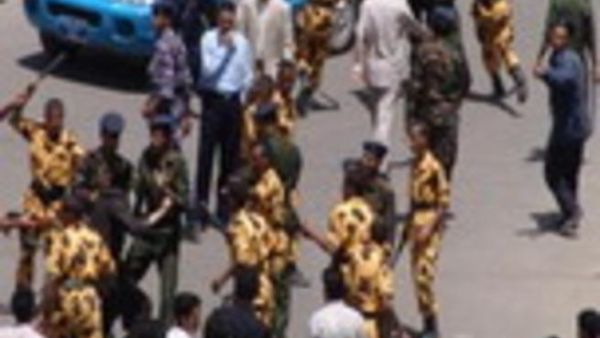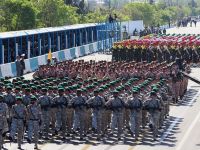At least 11 people died on Wednesday, following violent confrontations between police and protestors against the rise in fuel prices.
According to Yemen Observer, demonstrators managed to paralyze the streets of the capital. Soldiers fired warning shots and tear gas to disperse the protestors. One protestor was, according to witnesses, killed after having been shot accidentally in the stomach.
The price of petroleum has risen by around 90%, while the price of gas has gone up to YR400 (US$2.08) a cylinder, an increase of almost 80%.
In its weekly meeting on Tuesday , the Yemeni cabinet discussed the general budget deficit, which resulted from the international increase in the prices of oil products. The cabinet outlined the importance of tackling this deficit through adopting a set of measures to reduce the government support for prices of oil products.
A governmental paper has indicated that the allocation of the government for supporting fuel prices in its 2005 budget, which amounted to YR 44 billion (about US$230 million), was damaged because of increase the oil globally.
Based on the the new oil prices, the government needs YR 275 billion (US$1.43 billion) to support oil products.
The international price increase of oil products included all products like benzene, kerosene and gas. The Yemeni authorities said they were forced to raise prices after the local price for benzene remained fixed on YR35 per one liter, while in world market it amounted to SR96.







